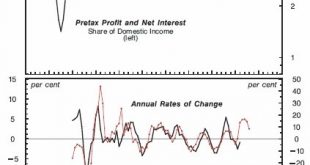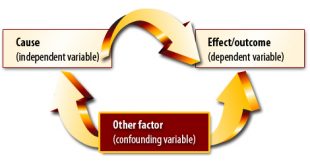from Shimshon Bichler and Jonathan Nitzan In our work, we’ve argued that, contrary to the conventional creed, capitalists dislike recovery. Their main driving force, we’ve claimed, is not the absolute level of their income, but its distributive share, and this later emphasis has far-reaching implication. Whereas the absolute level of capitalist income correlates with the absolute level of economic activity, the distributive share of that income depends on capitalist power. And in the...
Read More »Powers that construct and obstruct transformations in economics
from Deniz Kellecioglu and the current issue of the RWER The academic field of economics has been under an intensified pressure after the Global Financial Crisis (GFC), which began in September 2007 (cf. Backhouse 2010). This pressure involved demands to refine, reform, or completely overhaul the field. The latter group viewed the GFC as another dismal outcome of a dominant economics that is significantly supportive of financial interests, while being hostile to states, peoples, and the...
Read More »Open thread October 26, 2018
False balance
An almost-universal feature of current Australian political commentary is the idea that the process of major party breakdown is a symmetrical one, affecting both side of politics equally. At a global level, this is broadly true. European social democratic parties have faced huge challenges arising from their complicity in austerity, and their inability to formulate a coherent response to racism and xenophobia. Quite a few, like PASOK in Greece, have disappeared altogether. In Australia,...
Read More »Wren-Lewis insults medical science
from Lars Syll In a discussion today on twitter one discussant was questioning if economics really could be considered a science, adding that in physics — contrary to economics — “there are no different school of thoughts on ‘Newton’s Laws of Motion’. To this Simon Wren-Lewis answered: Exactly the same is true of mainstream economics. There are also groups who cannot live with the mainstream who form schools of thought, like MMT. But mainstream economics is a science, like medicine. But...
Read More »The Crisis: causes and consequences.
The following article was written for the Progressive Economy Forum’s publication – Ten Years Since the Crash: Causes, Consequences and the Way Forward – circulated at Labour Party Conference in October, 2018. 13th September, 2018 To fix things we need to first tell ourselves the correct story about how we got here. Financialization is easily the least studied and least explored reason behind our inability to create shared prosperity – despite our being the richest and most successful...
Read More »Those lumps matter
from Peter Radford I feel bad for anyone who ventures into the social sciences. Society is, after all, a devilishly complex subject. Pull on any one string and you can convince yourself that you have understood it only to realize the next day that you missed the entire story. It’s a maze: enter at your own risk. Of course the flip side is that you can never be entirely wrong either. Just about any half-baked idea has a smidgeon of truth hidden within it. Take a look at mainstream...
Read More »Econometrics and causality
from Lars Syll Judea Pearl’s and Bryant Chen’s Regression and causation: a critical examination of six econometrics textbooks — published in Real-World Economics Review no. 65 — addresses two very important questions in the teaching of modern econometrics and its different textbooks — how is causality treated in general, and more specifically, to what extent they use a distinct causal notation. The authors have for years been part of an extended effort of advancing explicit causal...
Read More »Life in a Socialist Future (updated)
I’ll be talking at the Ngara Institute’s Politics in the Pub event in Mullumbimby tonight. Unfortunately, their website appears to be offline today, but I’ll link if it comes up. The talk won’t be quite as utopian as the title might suggest, but it will be a “light on the hill” vision rather than short-term politics . I’m trying to think about how life might look 30 years from now, if Australian society returns to the progressive path we seemed to be following from the 1940s until the...
Read More »Queensland: beautiful one day, denialist the next?
One of the striking features of the current crackup on the right is the assumption, apparently widely shared, that climate science denial and subsidies for coal are winning issues in Queensland, however much they might appal the toffee-nosed elitists of Wentworth (and, presumably, Warringah and Kooyong among other long-standing Liberal party seats that can now be safely ignored). Those pushing this view might consider the recent Queensland election, in which proposed subsidies to Adani...
Read More » Heterodox
Heterodox



